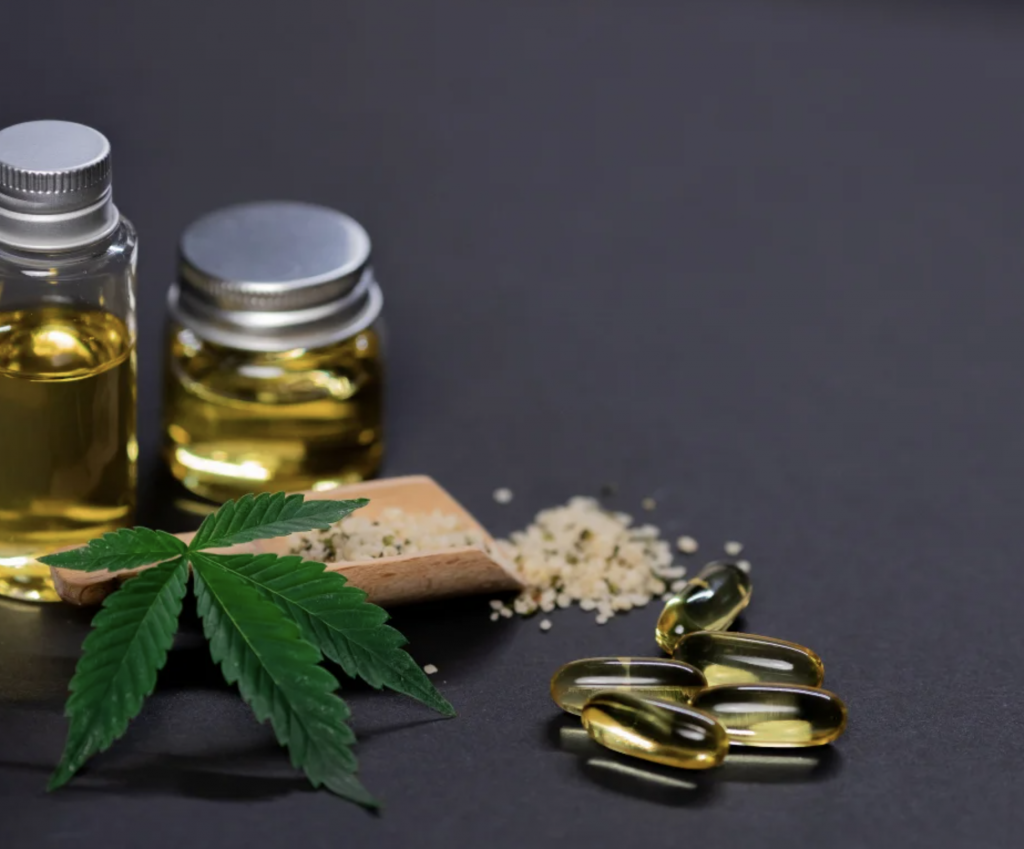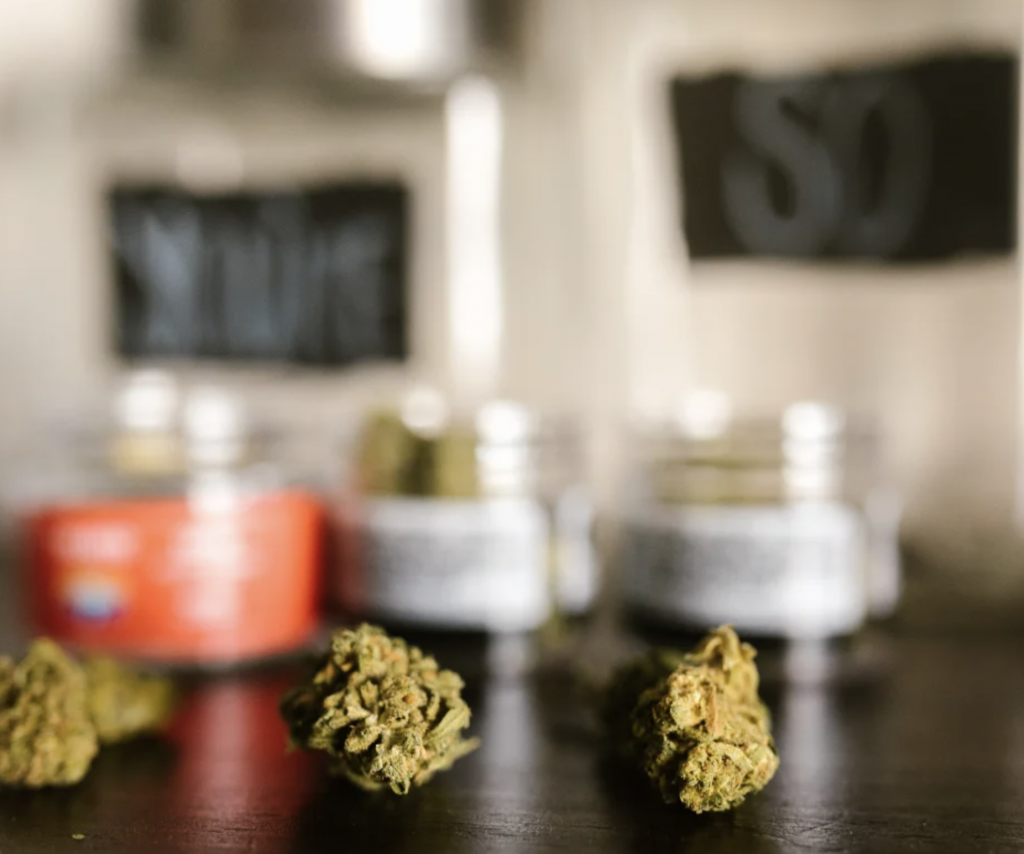
Cannabis and chronic pain. Many people know that cannabis can help chronic pain, but did you know it can cause it too? That’s right, thanks to the United States Federal Government, cannabis can be a chronic pain in the rear end if you get caught with it. Court cases often drag out for years! Thankfully the feds are doing more than just busting people for cannabis; they’re actually researching cannabis and chronic pain.
The United States federal government still supports its archaic cannabis policy implemented all the way back in 1937. Cannabis prohibition received a refresh in 1972 with the signing of the Controlled Substance Act. For nearly eight decades, our government has been demonizing cannabis. They have created a cloud of confusion surrounding cannabis. Many people have a hard time understanding the difference between medical cannabis, recreational cannabis, and industrial hemp.
Thankfully, we are starting to see a change. It is a very slow one, but we are witnessing it. Recently the United States federal government funded a review to analyze research studying cannabis and chronic pain. Professor Marion S. McDonagh of the Oregon Health and Science University Hospital conducted research on 25 studies monitoring the effects of different cannabinoid reactions on chronic pain.
According to research, THC is the most effective at helping to reduce chronic pain. The amount of THC required to notice a difference does cause intoxicating effects that can lead to dizziness or sedation, according to the studies research. This research suggested cannabis products with high levels of THC compared to CBD showed “moderate improvements.” Whereas products with equal ratios of THC and CBD showed “small improvements.”
Government Funded Research on Cannabis and Chronic Pain
It looks like the feds are scratching their heads, wondering if cannabis really does work. So much so that they are doing a review of studies about cannabis and chronic pain. The review of these studies was funded by the United States Department of Health and Human Services. Professor McDonagh told the media she did this study at the request of Congress. Her team was surprised about the lack of access to quality information and data there was on cannabis. Though, thanks to continued federal cannabis prohibition, this really shouldn’t come as a surprise.
Conducting research on cannabis is a risky business. It can cause issues with funding, insurance, and more. All of this is because of federal cannabis prohibition. If federal cannabis prohibition were to be ended, an exuberant amount of credible information could quickly become available supporting cannabis as medicine.
Many people already know cannabis is medicine. Instead of taking opioids, barbiturates, benzos, or other pharmaceutical medication, cannabis replaces this for many patients. Why is that so hard to believe? The medical community is programmed to think a certain way. They believe that medicine should be consistent and be able to be reproduced consistently time after time.

Cannabis is Medicine
In the United States, we call cannabis medicine. We make people see doctors for recommendations, and as patients, we have to carry medical cannabis cards, yet it is not treated like medicine. GPP (Good Growing Practices), GMP (Good Manufacturing Practices), and GXP (Good X Practices) are not requirements in the medical /recreational cannabis space. Hopefully, that will change. Though look at all the problems we have with pharma, even with protocols like these in place.
It is extremely difficult to replicate cannabis exactly over and over again. Even a stabilized strain will have different results with each plant. Different parts of the plant can test different than others. For the most part, though, you can find a strain of cannabis or several that do what you’re looking for. It’s almost as if the medical community is scared that THC might have some intoxicating effects. Like you’re going to have to take a medicine you enjoy!
Of course, there are intoxicating effects associated with THC as well as some other common side effects. These typically include dry mouth, dry red eyes, increased appetite, reduced pain, laughter, sleepiness, and more. Some of the negative sides would be headaches, dizziness, and sedation. Though, sedation can be good at times.
Dr. Marion S. McDonagh told the media, “With so much buzz around cannabis-related products, and the easy availability of recreational and medical marijuana in many states, consumers and patients might assume there would be more evidence about the benefits and side effects.”
The side effects of cannabis are greatly different than the side effects of pharmaceutical prescriptions. With just about every pharmaceutical prescription comes a warning about the possible side effect of death. The same cannot be said about cannabis.
Cannabis may Help you like It Helps So Many
People around the world have found that cannabis helps them. You can go online and see countless stories about cannabis helping people manage different medical conditions. You can even find stories about people curing cancer with cannabis. The thing about cannabis is it can work differently for everyone. What works for one person may not work for another.
The science of cannabis is slowly evolving. Today there are even tests like genome testing that can help identify specific varieties of cannabis that are best suited for you based on a swab test of your cheek. These tests can also recommend methods of consumption and offer other advice specific to you.
Cannabis is medicine. Many people find great therapeutic benefits in just sitting back and smoking a joint. Until you have tried it, it’s hard for people to take you seriously when you argue about the effectiveness or lack of proof of the effectiveness of cannabis.
The result of the research on the studies conducted about cannabis and chronic pain showed it does have the ability to reduce short-term chronic pain. Yet still, it remains a schedule one controlled substance with no acceptable medical uses and a high potential for addiction or abuse. It’s high time we end archaic thinking like this. Cannabis is a medicine and much more. Countless people will tell you the different ways cannabis works for them. Does cannabis help you? How do you feel about recreational and medical cannabis?
Disclaimer: The information, including but not limited to, text, graphics, images and other material contained in this article is for informational purposes only. No material from this article is intended to be a substitute for professional medical advice, diagnosis, or treatment. Always seek the advice of your physician or other qualified health care provider with any questions you may have regarding a medical condition or treatment before undertaking a new health care regimen. Never disregard professional medical advice or delay in seeking it because of something you have read on this website.
